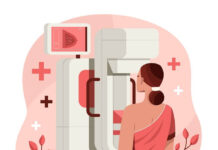A new study by Vanderbilt University Medical Center (VUMC) reveals that artificial intelligence (AI)-driven alerts can significantly improve the identification of patients at risk for suicide, enhancing prevention efforts in medical clinics.
The research, published in JAMA Network Open, evaluated the Vanderbilt Suicide Attempt and Ideation Likelihood model (VSAIL), an AI system designed to flag patients at high risk for suicide based on electronic health record data. The study, led by Dr. Colin Walsh, tested VSAIL in three neurology clinics at VUMC, comparing two types of alerts: interruptive pop-ups and passive notifications embedded in patient charts.
Results showed that interruptive alerts, which actively interrupted a doctor’s workflow, prompted suicide risk assessments in 42% of cases, compared to just 4% for passive notifications.
“Most people who die by suicide have seen a healthcare provider within a year of their death,” said Dr. Walsh. “Universal screening isn’t always practical, so VSAIL helps identify high-risk patients and facilitates focused conversations.”
Suicide is the 11th leading cause of death in the U.S., with 77% of individuals who die by suicide having had contact with primary care providers within the prior year. AI tools like VSAIL could help target prevention efforts by identifying the 8% of patient visits most likely to involve at-risk individuals, making screening manageable for busy clinics.
As reported by medicalxpress, the study included 7,732 patient visits over six months, generating 596 alerts. During the follow-up period, no patients flagged in either alert group experienced suicidal ideation or attempts. However, the researchers acknowledged potential challenges such as “alert fatigue,” where excessive notifications overwhelm healthcare providers.
“Balancing the benefits of interruptive alerts with their downsides is critical,” said Dr. Walsh. “These findings suggest that combining automated risk detection with well-designed alerts could enhance suicide prevention in healthcare systems.”
While this study focused on neurology clinics due to the heightened suicide risk associated with certain neurological conditions, the researchers suggested that similar AI systems could be tested in other medical specialties to broaden their impact.
























